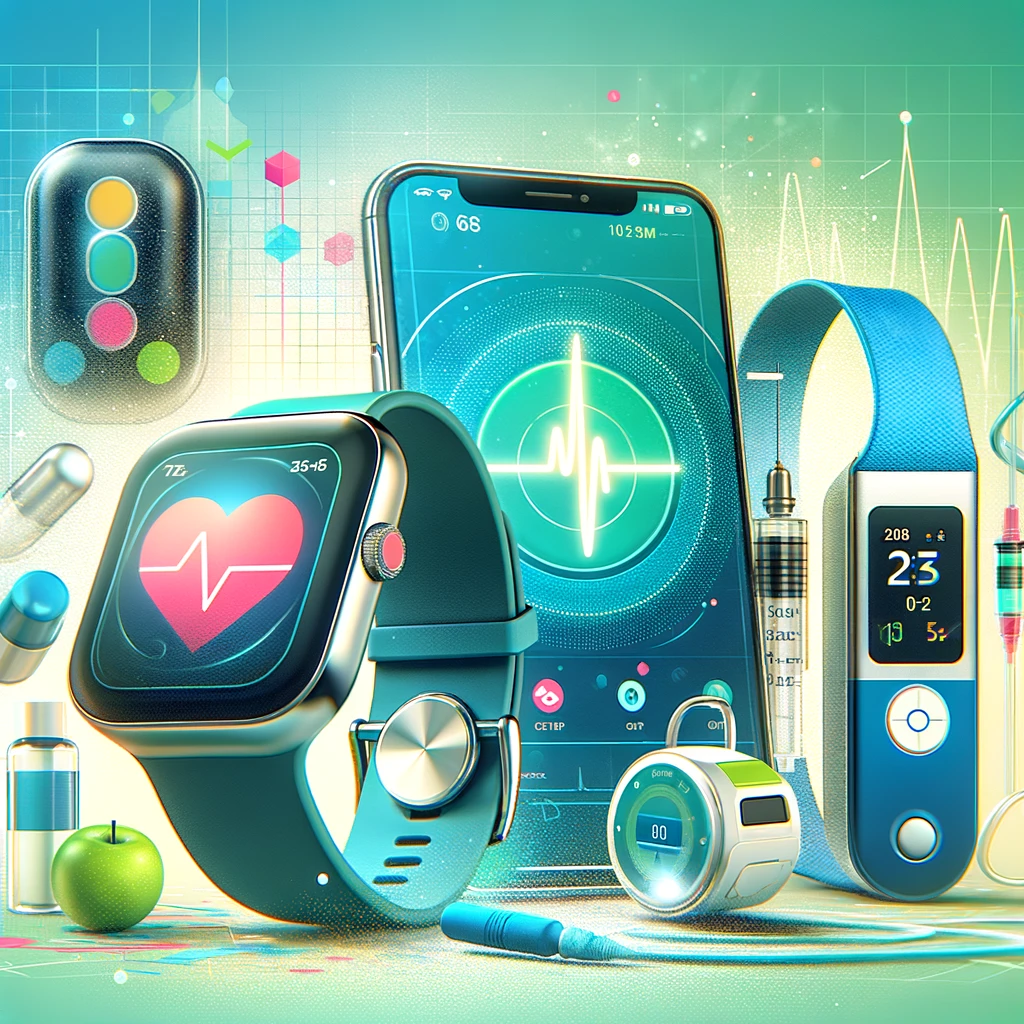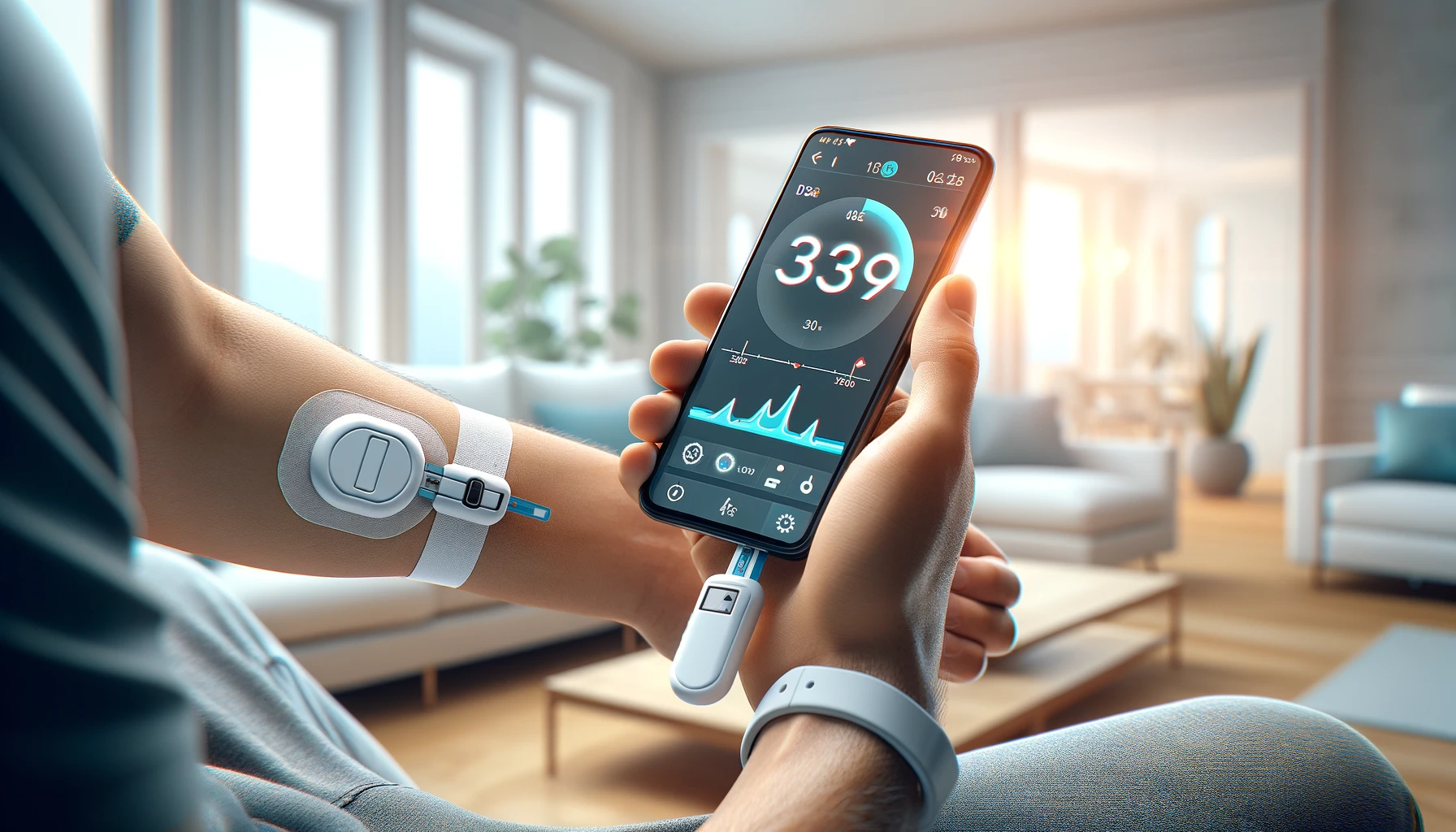
Table of Contents
The world of health devices is rapidly evolving, bringing innovative solutions that enhance our ability to monitor, diagnose and treat various health conditions. These advancements are transforming healthcare, making it more accessible, efficient and personalized. Let’s explore the latest innovations in health devices and how they are revolutionizing the healthcare landscape.
Wearable Technology
Smartwatches and Fitness Trackers
Wearable technology has taken the health and fitness world by storm. Devices like smartwatches and fitness trackers are equipped with sensors that monitor various health metrics such as heart rate, steps taken, calories burned and sleep patterns.
Health Monitoring Features
Modern wearables come with advanced health monitoring features like ECG (electrocardiogram), blood oxygen levels, and even blood pressure monitoring. These features provide real-time data that can alert users to potential health issues early.
Benefits of Wearables
Wearables offer numerous benefits, including continuous health monitoring, activity tracking, and motivational tools to help users stay active and healthy. They also facilitate better communication between patients and healthcare providers by providing accurate health data.
Home Health Devices
Blood Pressure Monitors
Home blood pressure monitors are essential for individuals with hypertension. These devices allow users to track their blood pressure regularly, helping them manage their condition more effectively.
Glucose Monitors
For diabetics, glucose monitors are vital. Continuous glucose monitors (CGMs) provide real-time blood sugar levels, enabling better glucose control and reducing the risk of complications.
Smart Scales
Smart scales measure more than just weight. They provide insights into body composition, including body fat percentage, muscle mass and water weight, helping users maintain a healthy lifestyle.
Telemedicine Devices
Remote Patient Monitoring
Telemedicine devices enable remote patient monitoring, allowing healthcare providers to track patients’ health data from a distance. This is particularly useful for managing chronic conditions and post-operative care.
Virtual Consultations
Devices like high-quality cameras and microphones facilitate virtual consultations, making healthcare accessible even to those in remote areas. These consultations are convenient and reduce the need for travel.
Devices Enhancing Telehealth
Innovations in telehealth include portable diagnostic devices that can be used at home, such as digital stethoscopes and otoscopes. These devices transmit data to healthcare providers for remote evaluation.
Diagnostic and Screening Devices
Portable ECG Monitors
Portable ECG monitors allow users to record their heart activity anywhere, providing critical data for diagnosing heart conditions. These devices are compact, user-friendly and often connect to smartphones.
At-Home Lab Tests
At-home lab tests are becoming increasingly popular. These kits allow users to collect samples (like blood, saliva or urine) and send them to a lab for analysis, receiving results online.
Early Detection Tools
Early detection tools, such as those for cancer screening, are becoming more advanced and accessible. These devices can detect biomarkers for early-stage diseases, significantly improving treatment outcomes.
Therapeutic Devices
Pain Management Devices
Devices like TENS (Transcutaneous Electrical Nerve Stimulation) units help manage chronic pain by sending electrical impulses to nerves, providing relief without medication.
Wearable Therapeutics
Wearable therapeutic devices, such as those for physical therapy, deliver targeted treatments to specific areas. They are convenient for at-home use and enhance recovery.
Rehabilitation Gadgets
Rehabilitation gadgets assist in the recovery process after injuries or surgeries. These devices offer guided exercises, monitor progress, and ensure proper technique to prevent further injury.
Innovations in Medical Imaging
Portable Ultrasound Devices
Portable ultrasound devices bring imaging capabilities to remote and underserved areas. These compact devices connect to smartphones and tablets, providing high-quality imaging on the go.
Advanced MRI and CT Scans
Advancements in MRI and CT technology have led to faster, more detailed imaging. These improvements enhance diagnostic accuracy and patient comfort.
AI in Medical Imaging
AI-powered medical imaging assists radiologists by identifying abnormalities and prioritizing cases. This technology speeds up diagnosis and improves accuracy.
Smart Medical Implants
Pacemakers and Defibrillators
Smart pacemakers and defibrillators monitor heart rhythms and deliver corrective impulses when needed. They can also transmit data to healthcare providers for ongoing management.
Smart Insulin Pumps
Smart insulin pumps deliver precise doses of insulin based on continuous glucose monitoring, helping diabetics maintain optimal blood sugar levels.
Neurostimulation Devices
Neurostimulation devices treat conditions like chronic pain and epilepsy by delivering electrical impulses to the nervous system, providing relief and improving quality of life.
AI-Powered Health Devices
AI in Diagnostics
AI algorithms analyze health data to diagnose conditions more accurately and quickly than traditional methods. These tools assist doctors in making informed decisions.
Personalized Health Insights
AI-powered devices provide personalized health insights based on an individual’s data, offering tailored recommendations for diet, exercise and treatment plans.
Predictive Health Monitoring
Predictive health monitoring uses AI to predict potential health issues before they become serious, enabling preventative measures and early interventions.
Health Devices for Chronic Conditions
Devices for Diabetes Management
Innovations in diabetes management include CGMs, smart insulin pens, and integrated apps that track and analyze blood sugar levels, medication, and diet.
Heart Health Monitoring
Heart health devices like smartwatches with ECG capabilities and home blood pressure monitors help individuals manage and monitor their heart health effectively.
Respiratory Health Devices
Respiratory health devices, such as smart inhalers and portable spirometers, assist in managing conditions like asthma and COPD, providing real-time data and improving treatment adherence.
Innovative Health Apps
Symptom Checkers
Health apps with symptom checker features allow users to input their symptoms and receive potential diagnoses, guiding them to seek appropriate medical attention.
Virtual Health Assistants
Virtual health assistants use AI to provide health advice, schedule appointments and remind users to take medications, enhancing overall health management.
Wellness Tracking Apps
Wellness tracking apps monitor various aspects of health, including diet, exercise, sleep and mental health, providing comprehensive insights into overall well-being.
The Role of Big Data and IoT
Integration of IoT in Health Devices
The Internet of Things (IoT) integrates various health devices, creating a connected ecosystem that provides holistic health insights and improved patient care.
Data Analytics for Health Insights
Big data analytics process vast amounts of health data, identifying trends and patterns that inform treatment plans and healthcare strategies.
Security and Privacy Concerns
With the increasing use of connected health devices, ensuring data security and patient privacy is crucial. Robust security measures are essential to protect sensitive health information.
Consumer Health Devices
Sleep Trackers
Sleep trackers monitor sleep patterns, providing insights into sleep quality and helping users improve their sleep hygiene.
Stress and Mood Monitoring
Devices that monitor stress and mood levels use biometric data to provide real-time feedback, helping users manage stress and improve mental health.
Nutrition and Diet Apps
Nutrition and diet apps track food intake, provide meal recommendations and analyze dietary habits, supporting users in making healthier food choices.
Future Trends in Health Devices
Emerging Technologies
Technologies like virtual reality, augmented reality and blockchain are poised to revolutionize healthcare by enhancing diagnostics, treatment and data management.
Potential Game-Changers
Innovations like gene editing tools, advanced prosthetics, and nanotechnology have the potential to significantly impact healthcare, offering new treatment possibilities.
Predictions for the Next Decade
The next decade will likely see further integration of AI, personalized medicine and wearable technology, making healthcare more accessible and efficient.
Challenges and Considerations
Regulatory Hurdles
Navigating regulatory requirements is a significant challenge for developers of new health devices. Ensuring compliance while fostering innovation is crucial.
Accessibility and Affordability
Making advanced health devices accessible and affordable to all populations is essential for reducing health disparities and improving public health.
Ethical Concerns
Ethical concerns, such as data privacy, informed consent and the potential for bias in AI algorithms, must be addressed to ensure the responsible use of health technologies.
Conclusion
The latest innovations in health devices are transforming healthcare, offering new ways to monitor, diagnose and treat various conditions. By embracing these technologies, we can improve health outcomes, enhance patient experiences and make healthcare more efficient and personalized.
FAQs
What are the benefits of wearable health devices?
Wearable health devices provide continuous health monitoring, track fitness activities and offer early warnings for potential health issues, making it easier to manage overall health.
How do telemedicine devices work?
Telemedicine devices enable remote health monitoring and virtual consultations, allowing healthcare providers to track patient data and communicate with patients from a distance.
Are at-home diagnostic tests accurate?
At-home diagnostic tests are generally accurate when used correctly. They offer convenience and quick results but should be followed up with professional medical advice if necessary.
What are the latest trends in health devices?
Latest trends include AI-powered diagnostics, wearable therapeutics, smart medical implants and integrated health apps that offer personalized health insights.
How do AI-powered health devices enhance patient care?
AI-powered health devices analyze health data to provide accurate diagnostics, personalized treatment recommendations and predictive health monitoring, improving patient outcomes.

